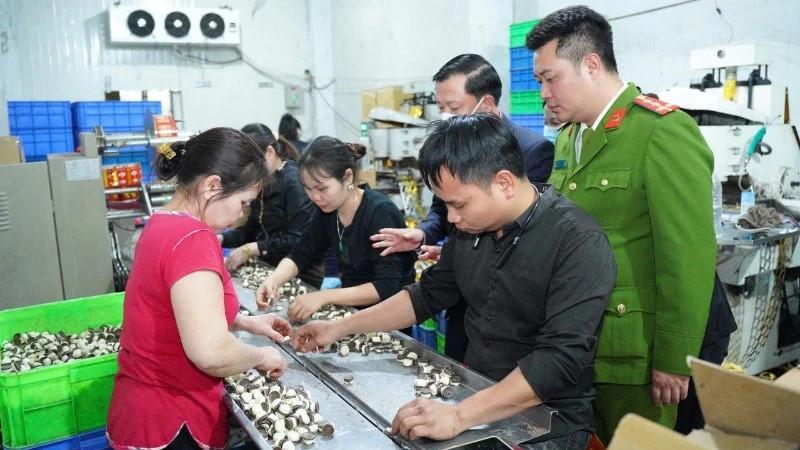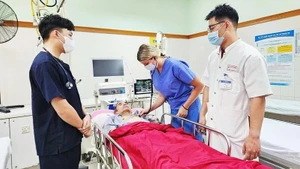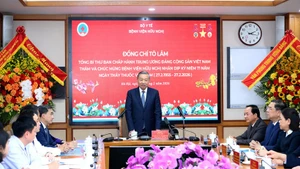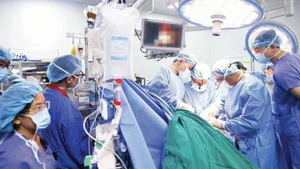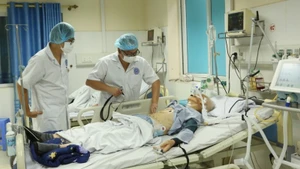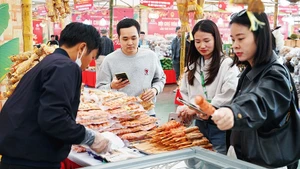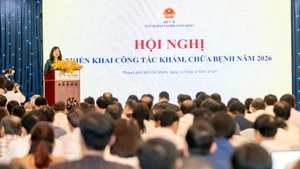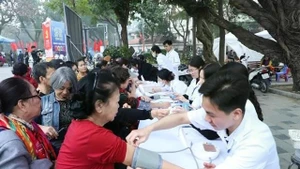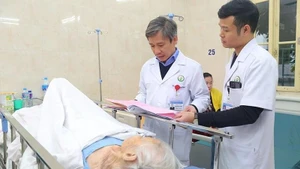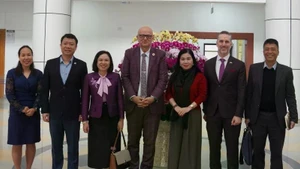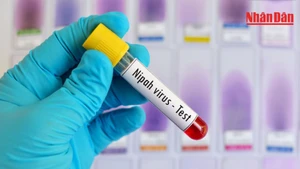Increasingly sophisticated methods
Recently, the smuggling, commercial fraud, and production and sale of counterfeit products in the health sector—including pharmaceuticals, health supplements, cosmetics, medical equipment, and related products—have become more complex and are on the rise.
From 2020 to May 2025, the Viet Nam Food Administration (Ministry of Health) conducted inspections and post-inspections at over 400 food establishments, sanctioning 198 violating entities with total fines amounting to 23.76 billion VND (916,900 USD). Thirty-one cases involving counterfeit health supplements containing banned substances or fake documentation were referred to the police for criminal investigation.
In the area of pharmaceuticals, cosmetics, and medicinal herbs, in 2024, units under the Ministry of Health established more than 260 inspection teams to assess compliance with Good Manufacturing Practice (GMP) and Good Storage Practice (GSP) standards. The Ministry issued 46 administrative sanction decisions, imposing total fines of over 2.5 billion VND (96,400 USD).
Deputy Minister of Health Do Xuan Tuyen stated that although the Ministry has collaborated with other ministries, agencies, and localities to implement various state management and anti-counterfeiting measures in the healthcare sector, the fight against smuggling, commercial fraud, and counterfeit products remains challenging due to increasingly sophisticated tactics by offenders. These include exploiting high technology and social media, limitations in the testing and inspection system, inconsistent local governance, and legal loopholes.
In the pharmaceutical sector, counterfeit drugs can penetrate the market due to sales without invoices or documentation. Current administrative penalties for producing and trading counterfeit goods lack sufficient deterrence, especially for low-value items that do not meet the threshold for criminal prosecution.
Producing and trading counterfeit drugs is an illegal activity with high profits. Offenders often use sophisticated methods, such as underground production or splitting operations across multiple locations, and use social media to hide their activities. A segment of the population is also prone to buying and using medication based on online advice or advertising, increasing the risk of unknowingly consuming counterfeit or untraceable drugs.
In food safety, high profits from producing and trading counterfeit food are a strong motivator for violations. Offenders take advantage of regulatory loopholes, especially in business registration and self-declaration of product compliance.
Their methods are increasingly difficult to detect, including mislabelling low-quality goods as imports, using counterfeit labels, creating broad distribution networks, exploiting celebrities and doctors for misleading advertisements, and selling via social media and e-commerce platforms, which provide high anonymity. Many consumers still lack awareness, confusing food with supplements or drugs and trusting false advertising, leading to unsafe purchases.
Meanwhile, post-market inspection teams remain understaffed and underfunded, making enforcement insufficient compared to the actual situation.
A collective effort is essential
Minister of Health Dao Hong Lan reaffirmed the Ministry’s stance on strict enforcement with "no forbidden zones" and "no exceptions." She stressed that this is a difficult, complex, and long-term mission that requires coordinated and determined efforts from all levels, sectors, and society as a whole.
To effectively implement Directive No. 65/CĐ-TTg (dated May 15, 2025) by the Prime Minister, which calls for a crackdown on smuggling, commercial fraud, counterfeit goods, and intellectual property infringement, and Directive No. 13/CT-TTg (dated May 17, 2025) on strengthening efforts against smuggling and counterfeiting in the new context—particularly during the peak anti-smuggling campaign from May 15 to June 15 2025—the Ministry of Health has urged affiliated units and provincial and municipal health departments to review and refine the legal framework and regulations for managing and penalising the production and sale of counterfeit and untraceable drugs.
Recommendations include increasing administrative penalties and applying harsher supplementary punishments, promptly recalling and addressing cases of false advertising or improper ingredient declarations, and reviewing and proposing amendments to the Law on Food Safety and related legal documents.
The Ministry will continue working with the Ministries of Industry and Trade, Agriculture and Environment, Science and Technology, and Culture, Sports and Tourism to strengthen inspections and enforcement against the production and sale of counterfeit foods and commercial fraud in the market, while also tightening controls on e-commerce platforms and advertising practices.
At the local level, provincial and municipal People’s Committees must strengthen coordination with investigative police to handle detected cases, direct specialised agencies to focus on inspections, supervision, and post-market control of health-related businesses (food, drugs, cosmetics, medical devices), with particular attention to product origin—especially for medicines, health supplements, and food.
Violations must be dealt with strictly under the law, and files should be transferred to the police if criminal signs are detected. Information dissemination should be intensified to raise public awareness of the dangers of counterfeit drugs and food. Public participation in monitoring the quality of medicines and food should be encouraged.
Pham Van Duy, Deputy Director of Quality Management, Processing, and Market Development (Ministry of Agriculture and Environment), recommended that relevant ministries and sectors enhance inspections and post-inspections of food safety, strictly penalise the sale of counterfeit or harmful foods of unknown origin, and improve the legal framework for technical standards, pre-market and post-market procedures, and licensing of goods.
He added that the Ministry of Agriculture and Environment should direct relevant agencies to inspect and handle violations in forestry and fisheries, the production and sale of plant and animal varieties, and fake pesticides. Measures must be implemented to control the use of growth stimulants, particularly the use of chemicals to increase the weight of produce.
